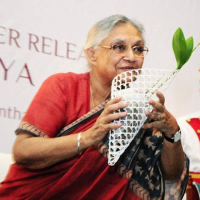Govt Undermines the Office of State Governor By Targeting UPA Appointees
 Kerala Governor Sheila Dikshit
Kerala Governor Sheila Dikshit
The new NDA administration has got off to a rocky start in its attempt to purge all institutions of political appointees from the previous UPA administration. Seven state governors appointed by the UPA have been informally asked to resign – a few have complied, while others have dug their heels in and refused to go till asked to do so in writing.
The NDA is merely following in the footsteps of the UPA, which when it came to power in 2004 had forced four governors to resign. But by aping this precedent, the NDA is establishing an unhealthy tradition that risks undermining the institution of governor itself.
It is reasonable for a new administration to want to appoint its own people in important positions, especially in politically important states where the governor can play a crucial role in choosing a state government in case of a hung assembly. When a party has been out of power for 10 years, as in the case of the BJP, the position of state governor is also useful in accommodating aging party stalwarts who have not been offered ministerial positions.
A governor is appointed by the President for a term of 5 years on the advice of the Council of Ministers, which means he or she is chosen by the government in power.
But the Supreme Court has come down on the practice of removing governors on a political whim. In 2010, it held that governors were not employees of the federal government to be removed in case of a loss of "confidence" in them.
The judgment provided an exception that allows the government to build a file containing the reasons for a governor's removal before it makes such a recommendation to the President. The President may return the file for reconsideration – a sign of his displeasure and a political snub if there ever was one – but he is obliged to accept the recommendation if the Cabinet confirms its decision.
The NDA administration is likely to have its way on this issue, with the Congress unable to strongly oppose the practice that it began. Those governors who refuse to resign voluntarily may be formally dismissed or transferred to smaller, politically less important states.
Yet this controversy has already cheapened the office of governor if a secretary of the federal government can call up a state governor and tell him or her it’s time to leave. The governor is the second-highest constitutional position, second only to the President.
As Pratap Bhanu Mehta points out in the Indian Express, a civilised democracy gives “the offices the respect due to them. After they assume office, governors are not individuals belonging to a party” and cannot be treated as minions to do the Centre’s bidding.
This entire episode has left no one looking particularly good, least of all an administration that had promised it would act differently from the UPA.
- Karan Singh
- Top Stories
- Controversies
- Where is the Money Going?
- India and the World
- Appointments and Resignations
- Unusual News
- Latest News
- India College Chain’s Expansion into U.S. Draws Opposition from Massachusetts Officials over Quality of Education
- Milk Shortages in India Tied to Release of New Movies Featuring Nation’s Favorite Stars
- Confusion Swirls around Kashmir Newspaper Ban in Wake of Violent Street Protests
- Polio-Free for 5 Years, India Launches Vaccine Drive after Polio Strain Discovery
- New Aviation Policy Could Increase Service, Lower Ticket Prices






Comments